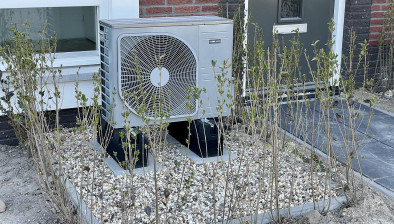Draft Climate Change Plan maps out Scotland’s pathway towards net zero

Communities will benefit from cleaner air, warmer homes and new job opportunities under draft plans to cut emissions published yesterday, according to the Scottish Government.
The draft Climate Change Plan to 2040 sets out actions designed to reduce Scotland’s greenhouse gas emissions and meet our first three carbon budgets, whilst supporting jobs, growth and community regeneration.
The new plan details over 150 policies and proposals building on this progress, including:
- setting a target to decarbonise building heat systems by 2045
- phasing out new diesel and petrol cars by 2030
- increasing woodland creation so that by 2029/30 18,000 hectares are planted every year, with 21% woodland cover in Scotland by 2032
- increasing peatland restoration by 10% each year to 2030
The independent Climate Change Committee has emphasised the necessity for shared delivery and collaboration between national governments given between 30-60% of the emissions reduction required in Scotland, Wales, and Northern Ireland will be in areas of policy that are mostly reserved.
A consultation on the proposals will run until the new year.
Climate action secretary Gillian Martin said: “Raising awareness of climate action has never been so important, with communities across Scotland and around the world already being affected – through flooding, heatwaves and wildfires.
“This draft plan includes over 150 actions across sectors such as transport, heat in buildings and agriculture that are key to achieving Scotland’s net zero goal while supporting people to make and adjust to the changes required.
“It also describes how we will seize and fairly distribute the opportunities from the transition to net zero – from new jobs, inclusive growth and better infrastructure to improved public services and healthier people – thanks to cleaner air, warmer homes and wealthier communities.
“The plan does not ask the impossible of people. We will not sacrifice people’s health or wealth.
“Through this consultation, everyone has a voice in shaping the final plan to inform future decision making and ensure that we reach our net zero in a way that is fair, ambitious and capable of rising to the emergency before us.”
IPPR Scotland warned that the climate plan risks falling short without fair funding and real public participation.
Dave Hawkey, senior research fellow, said: “This plan must mark a turning point in Scotland’s contribution to the global efforts to protect the planet, with the next phase of decarbonisation reaching more closely into people’s daily lives. Climate has dropped down the priority list in public debate despite November already feeling unseasonally warm. To its credit, Scottish government has used this plan to try to reverse this trend, setting out a positive case for climate action which emphasises the additional benefits that come along with cutting emissions.
“However, key questions appear to remain unanswered in this plan. In particular, a successful plan must set out how in practice we will share the upfront costs of transition fairly. Doing so is critical to making sure implementation of the plan does not widen inequalities and that people are not penalised for doing the right thing.
“Effective policies need to be done with people, not to them, meaning public participation in the policy making process is critical. There are various forms this can take, from citizens assemblies for wide ranging discussion to citizens juries to consider specific issues. Here there is a real risk the Scottish government falls short, merely opening an email address for comments rather than investing in substantive engagement.”
Chief executive of Consumer Scotland Sam Ghibaldan highlighted the importance of engaging and supporting consumers to enable them to play their part in meeting carbon reduction targets.
He said: “The transition to net zero is one of the defining challenges of modern times and enabling consumers to make low carbon choices, including how we heat our homes and how we travel, will play a significant part in our response.
“Despite the contribution consumers could make to combating climate change, too often it is overly complex, costly or confusing for them to do so. To unlock these potential benefits and enable participation, consumers need to have access to the right products and services as well as incentives.
“We welcome the Scottish Government’s focus in the draft plan on supporting consumers in moving to cleaner home heating systems and the emphasis on government leadership to make this happen.
“We also welcome the focus on investing in public charging networks for electric vehicles and incentives for consumers to choose electric vehicles.
“We further note the Scottish Government’s commitment to work with Consumer Scotland to ensure consumer fairness and equity is central in future energy market reforms.
“Consumer Scotland will be responding to the consultation to ensure consumer interests continue to be central to all decision-making in the ongoing drive to meet carbon reduction targets.”

















